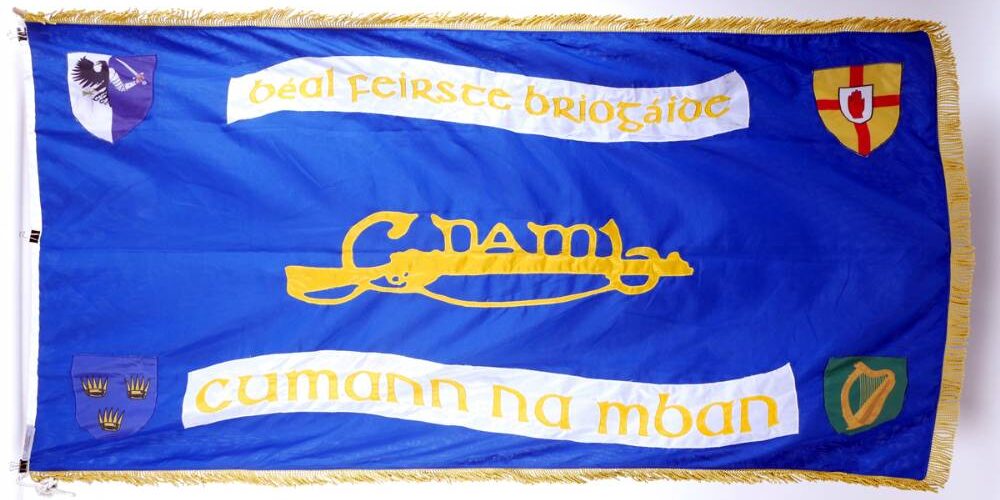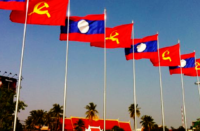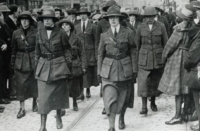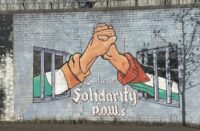One of the most interesting anecdotes in the history of the 1916 Rising is the picture of Pearse telling the British of the surrender alone. We know he did not stand alone but Elizabeth Farrell was there with him, a vital messenger airbrushed out of history. Many women throughout history have similarly been forgotten and their credit given to the men they stood beside in great moments.
Elizabeth Farrell was a Cumann na mBan member. The organisation was founded in Wynne’s Hotel in Dublin. Its objectives were to advance the cause of Irish liberty, assist in arming the militarist organisations, and form the Defence of Ireland fund. Throughout the week of the 1916 Rising, the volunteers from Cumann na mBan were invaluable as nurses, messengers and aides. Throughout the War of Independence, they were equally invaluable, gun-running and providing shelter to the IRA’s “flying columns”. When the Dáil was established in 1919, much of the secretarial staff was drawn from Cumann na mBan. The women of Cumann na mBan were also tasked by Propaganda Director Mabel FitzGerald, who was the organiser of Desmond Fitzgerald’s election campaign, to collect details of British atrocities at a local level for publication in the Irish Bulletin.
Even before Cumann na mBan, women played a crucial role in Ireland’s history. In 1915 Constance Markievicz wrote an article in Connolly’s newspaper Irish Citizen titled “The Women of ’98”. In this article she wrote, “all through the records of the struggle for independence allusions to deeds done by women and girls drift, giving us an idea of the place taken by the women of Ireland in the national struggle. We get glimpses of them through the smoke of their burning homesteads, and the dust and din of the battlefields; and most of these glimpses show us that the women of Ireland were worthy of the country that bore them.” Women being forgotten in history by the mainstream is not unique to Irish history. We share this, among other parts of our history, with Palestine.
The Palestinian struggle was brought to the world stage when Leila Khaled along with several others from the Popular Front for the Liberation of Palestine hijacked a plane. Khaled is the best-known woman within the Palestine liberation movement but she is not the only one. The history of Palestinian activism has been broadcast as predominantly male to Western audiences, but women have been at the forefront of Palestinian resistance since the beginning. As far back as the 1920s, Palestinian women stood side by side with the men of their country protesting occupation by Britain and today against the “Israeli” occupation. Palestinian men, women and children have been victim to a genocide perpetrated by the “Israelis” but ever since British occupation have taken destiny into their own hands to fight for their national sovereignty. In Leila Khaled’s words, “I have learned that a woman can be a fighter, a freedom fighter, a political activist, and that she can fall in love, and be loved, she can be married, have children, be a mother… Revolution must mean life also; every aspect of life.” – Leila Khaled
Women have been active in many facets of revolution throughout history. Lenin himself said in a speech at the first All-Russia Congress of Working Women, “There can be no socialist revolution unless very many working women take a big part in it.” A revolution that progresses society into the next historical epoch must involve all those who will be a part of that society: we cannot forget those who were involved in previous ones.






